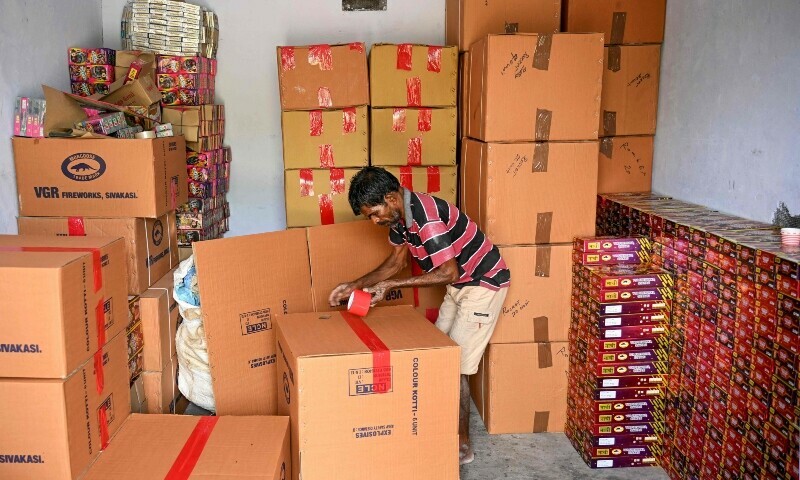India’s capital New Delhi on Monday requested a “complete boycott” on firecrackers in a bid to check air contamination in a city where levels are consistently positioned among the most terrible on the planet.
The most stringent restriction in a long line of restrictions on the extremely popular firecrackers has been widely flouted.
The Delhi Pollution Control Committee issued a statement that stated, “There will be a complete ban on the manufacturing, storage, selling, […] and bursting of all types of firecrackers.”
It stated that the “public interest to curb high air pollution” prompted the issuance of the order.
It comes fourteen days before Diwali, the Hindu celebration of lights on November 1, where many consider firecrackers to be necessary to festivities.
The spectacular and vibrant festival is a celebration of the Hindu goddess Lakshmi and represents the triumph of light over darkness.
In the metropolis of roughly 30 million people, previous restrictions were frequently disregarded.
Police are frequently hesitant to act against violators, given areas of strength for the opinions joined to the saltines by Hindu lovers.
The burning of stubble by farmers in the surrounding areas is primarily to blame for the noxious smog that blankets New Delhi in the autumn, but the influx of fireworks around Diwali exacerbates the issue.
In the city, levels of fine particulate matter (PM2.5)—cancer-causing microparticles that enter the bloodstream through the lungs—frequently exceed 30 times the World Health Organization’s danger levels.
A Lancet report in 2020 said very nearly 17,500 individuals kicked the bucket in Delhi in 2019 due to air contamination.
Previously, firecrackers were pirated in across state limits or were accessible under the counter.
To avoid trouble, residents then set off the loud explosives in the middle of the night or early in the morning.
However, this year, Delhi’s city government asked the state police to submit “daily action taken reports” in order to enforce the ban.



